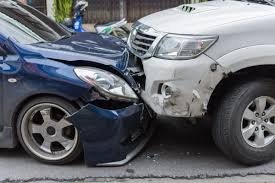As a truck owner or operator, ensuring that your vehicle is well-protected is essential to maintaining a profitable and efficient business. Physical damage insurance plays a key role in safeguarding your fleet against costly repairs and replacements due to unforeseen circumstances. Within this coverage, two primary components—collision insurance and comprehensive insurance—work together to offer extensive protection for your trucks.
What is Collision Insurance?
Collision insurance is a type of physical damage insurance designed to cover repairs or replacement costs of your truck when it is involved in a collision with another vehicle or object, regardless of fault. Whether your truck crashes into another vehicle, a guardrail, or even a tree, collision coverage can help cover the repair costs or the replacement of the truck if the damage is severe.
For trucking businesses, accidents are an inevitable risk, especially when vehicles are on the road for long hours or across unpredictable terrains. While many drivers may have liability insurance, which covers the other party’s damages if the truck driver is at fault, liability coverage doesn’t extend to your own vehicle. Collision insurance ensures that the cost of repairs is covered, so your business doesn’t face a major financial setback after an accident.
Having collision insurance is crucial for protecting your business from the costs associated with accidents. Even minor accidents can result in hefty repair bills, which, if not covered, could significantly impact your company’s cash flow and operational capabilities.
What is Comprehensive Insurance?
Comprehensive insurance is another type of physical damage coverage, but it covers incidents that are outside of your control and are not related to a collision. Unlike collision insurance, comprehensive coverage applies to damage caused by non-collision events such as theft, vandalism, natural disasters, or even falling objects. In addition to incidents that occur on the road, comprehensive insurance can protect your truck from a wide range of unforeseen risks.
For instance, if your truck is damaged during a hailstorm, or if it’s stolen overnight while parked, comprehensive insurance can cover the replacement or repair costs. This type of coverage ensures that your trucking business isn’t financially crippled by external factors that go beyond the driver’s control.
As a trucking business owner, you’re not only concerned about collisions with other vehicles but also about risks that could be harder to predict. Comprehensive insurance provides peace of mind by covering these unpredictable risks, helping to protect your business from potential losses caused by natural disasters, theft, and other events outside your control.
Why Both Collision and Comprehensive Insurance Are Essential
While collision insurance covers accidents and impacts that happen directly on the road, comprehensive insurance covers a broader range of risks that could damage or destroy your vehicle. For trucking businesses, relying on just one of these coverage options might leave you exposed to significant financial risks.
For example, without collision coverage, your business would be fully responsible for the costs associated with accidents, including the potential replacement of the truck. Similarly, without comprehensive coverage, your business would be on the hook for losses incurred from vandalism, theft, or severe weather conditions.
By combining both collision and comprehensive coverage, trucking business owners can ensure that their fleet is comprehensively protected. This dual protection allows for repair or replacement costs to be covered in nearly every situation—whether it’s an accident on the road or damage caused by unforeseen environmental factors. In an industry where truck repair or replacement costs can reach tens of thousands of dollars, both of these types of physical damage insurance are vital for minimizing financial risk.
How Collision and Comprehensive Insurance Save Your Trucking Business Money
While purchasing both collision and comprehensive insurance may seem like an additional expense, the financial protection they offer can save your trucking business money in the long run. Without these types of coverage, even a single accident or instance of theft could lead to severe financial strain.
Consider this: a collision accident could require thousands of dollars in repair or replacement costs. If your truck is out of commission for an extended period, it could also lead to a loss of revenue. Similarly, if a truck is damaged during a natural disaster or stolen, having comprehensive insurance would cover these costs, ensuring that your business continues operating without a significant loss of assets.
In addition to protecting your business from costly damages, having the right physical damage insurance can help you maintain operational continuity. With fewer disruptions due to accidents or damage, you can keep your trucks on the road, meet customer deadlines, and continue delivering goods on time.
Conclusion
As a trucking business owner, protecting your fleet with the right coverage is crucial for minimizing risks and ensuring long-term success. Both collision insurance and comprehensive insurance are essential components of a well-rounded physical damage insurance policy. Collision coverage protects you in the event of a crash or collision, while comprehensive insurance covers damage from non-collision events like theft or severe weather.
By investing in both types of physical damage insurance, you safeguard your fleet and protect your bottom line from unexpected repair or replacement costs. As you evaluate your business’s needs, make sure to choose an insurance provider that offers these two key coverage types, so you can drive your business forward with peace of mind and financial protection.
